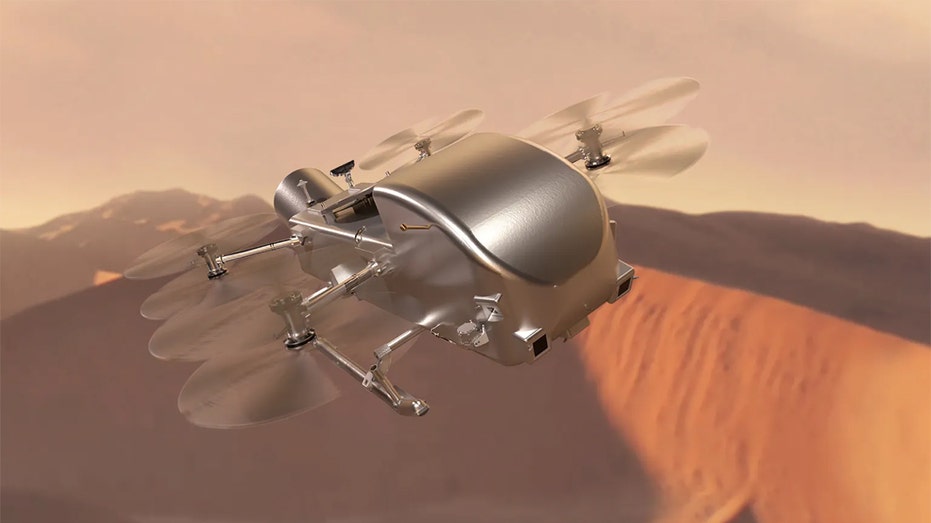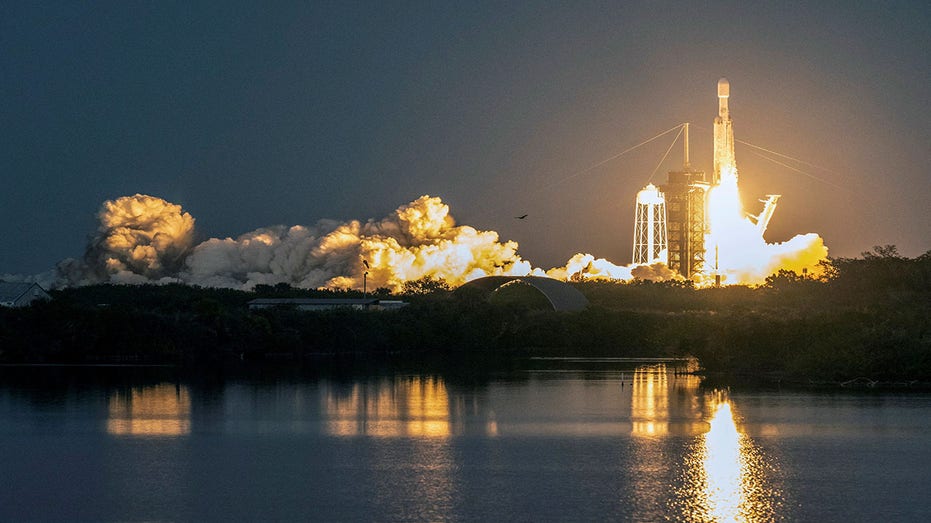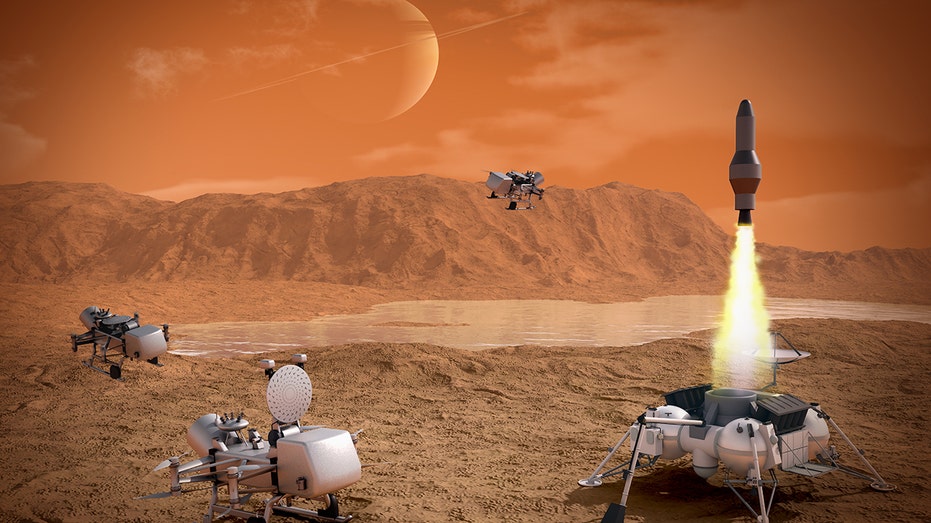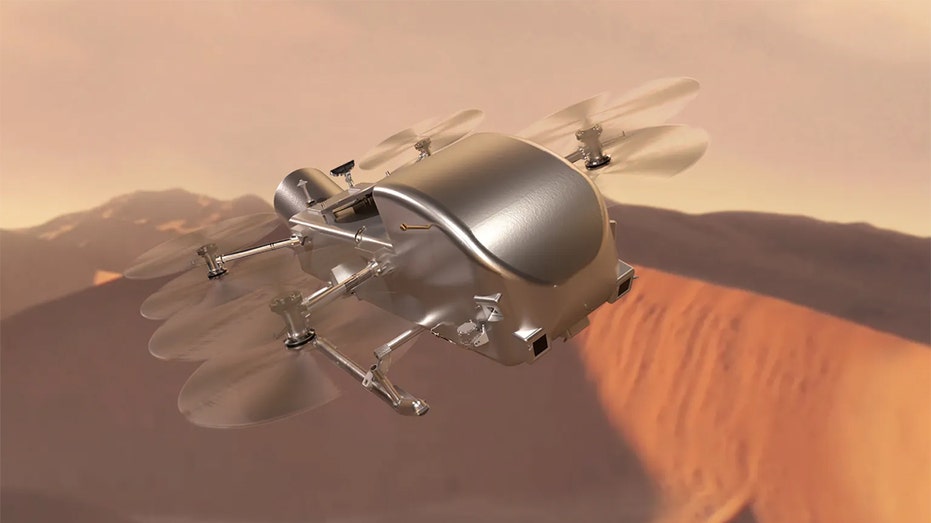The craft will embark on a journey to Saturn’s largest moon, Titan, in 2028.
NASA announced this week that it has selected SpaceX to provide launch services for its Dragonfly mission to explore Saturn’s moon Titan.
In May, the space agency gave the Dragonfly rotorcraft mission the green light after overcoming hurdles from COVID-19 delays and budget overruns.
The autonomously operated nuclear-powered rotorcraft is set to embark on its groundbreaking journey to Saturn’s largest moon, Titan, sometime between July 5-25, 2028. The payload will be launched using a SpaceX Falcon Heavy Rocket from Launch Complex 39A at NASA’s Kennedy Space Center in Florida.
NASA said the mission will include sampling materials and determining the surface composition in various geologic settings, to advance humanity’s search for the building blocks of life.
SPACEX GETS CLOSER TO HUGE INCREASE IN ANNUAL TEXAS LAUNCHES AS FAA ENVIRONMENTAL ASSESSMENT ADVANCES

Artist’s concept of Dragonfly soaring over the dunes of Saturn’s moon Titan. (NASA/Johns Hopkins APL/Steve Gribben)
SpaceX and NASA agreed on a contract valued at about $256.6 million, which includes launch services and other mission-related costs.
NASA would not comment on other proposals, saying the information is sensitive.
SpaceX did not respond to FOX Business’ request for comment.
TRUMP WATCHES SPACEX STARSHIP LAUNCH IN TEXAS ALONGSIDE ELON MUSK

A SpaceX Falcon Heavy rocket is launched at Cape Canaveral, Florida. (Steve Nesius / Reuters Photos)
Located about 746 million miles from Earth, Titan is the second-largest moon in our solar system and the only one with a dense atmosphere, besides Earth.
What makes Titan truly unique is its organic chemistry. Its nitrogen- and methane-rich atmosphere makes it a haven for scientists seeking to understand the building blocks of life.
But the moon offers several challenges when it comes to exploration, including its swamp-like surface, composed of petroleum byproducts.
BRYSON DECHAMBEAU TAKES IN SPACEX LAUNCH WITH TRUMP: ‘NEVER BEEN SO INSPIRED’

An artist rendering of a NASA Dragonfly lander spacecraft exploring the surface of Titan, a moon of the planet Saturn. (Illustration by Adrian Mann/Future Publishing via / Getty Images)
Traditional rovers would not do well on Titan because of its icy and sandy surface, which is why the Dragonfly, a rotorcraft powered by radio thermal generator, is being used.
The device flies using aluminum/titan rotors designed to allow it to leap across Titan’s mountainous and volcanic landscape, while conducting geological surveys and searching for biosignatures.
GET FOX BUSINESS ON THE GO BY CLICKING HERE
Despite financial debates, the mission’s delay necessitates a more powerful rocket to ensure Dragonfly’s arrival on Titan. With a budget of $3.35 billion, the mission represents NASA’s commitment to pushing the boundaries of space exploration.
Fox News’ Kurt Knutsson contributed to this report.
